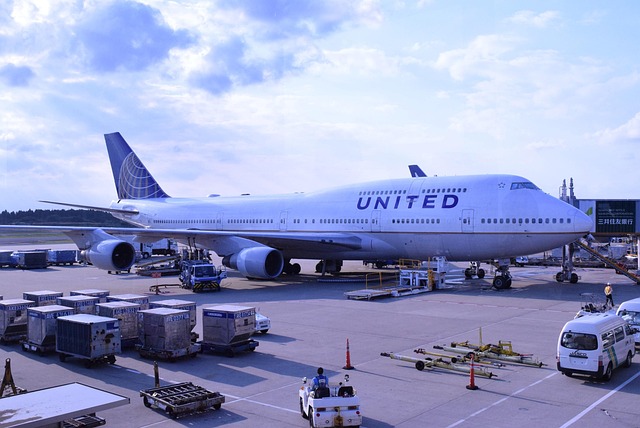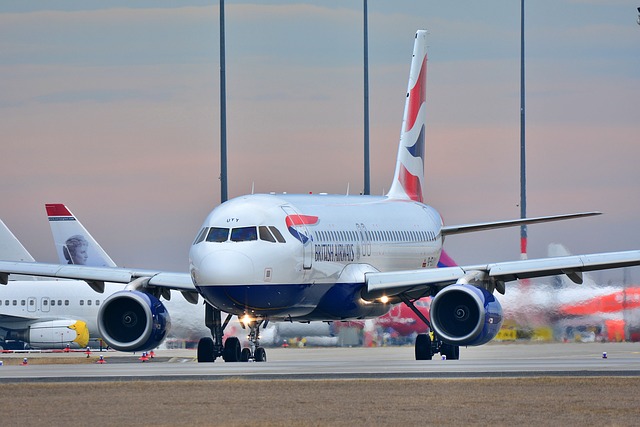Aviation training options for future airport employees in Germany
Individuals interested in a career at an airport in Germany can explore various training programs tailored for aspiring employees. These programs are designed to equip candidates with essential skills and knowledge without the necessity of prior experience. This presents an excellent opportunity to embark on a fulfilling career in the aviation sector.

What training programs are available for aspiring airport employees in Germany?
Germany offers several structured training programs for those interested in airport careers. The dual vocational training system (duale Berufsausbildung) forms the backbone of aviation training, combining classroom instruction with hands-on experience. Common training programs include:
-
Aircraft Mechanic (Fluggerätmechaniker): This program focuses on aircraft maintenance, repair, and technical operations. Students learn about aircraft systems, components, and safety regulations while gaining practical experience in maintenance hangars.
-
Aviation Service Specialist (Servicekaufmann/-frau für Luftverkehr): This training prepares students for customer-facing roles at airports, including check-in, boarding, and passenger services. The curriculum covers ticketing systems, safety procedures, and customer service skills.
-
Airport Ground Handling Professional (Fachkraft für Bodenverkehrsdienste): This specialized program trains students in all aspects of ground operations, including baggage handling, aircraft marshalling, and ramp services.
-
Air Traffic Control Training: Offered by Deutsche Flugsicherung (DFS), this intensive program prepares candidates for air traffic control positions through theoretical education and simulator training.
-
Aviation Management Studies: Several universities of applied sciences (Fachhochschulen) offer bachelor’s and master’s degrees in aviation management, focusing on the business and operational aspects of airports and airlines.
What qualifications are needed to start aviation training in Germany?
The entry requirements for aviation training programs in Germany vary based on the specific career path and training institution. However, most programs share some common prerequisites:
For vocational training programs (Ausbildung), candidates typically need a secondary school certificate (Realschulabschluss or Mittlere Reife) at minimum. More competitive programs may require an Abitur (higher education entrance qualification). Strong English language skills are essential across all aviation roles, as English is the international language of aviation.
For air traffic control training, requirements are particularly strict. Candidates must be between 18 and 24 years old, possess an Abitur or equivalent qualification, demonstrate strong English proficiency, pass medical examinations, and successfully complete aptitude tests measuring spatial awareness, multitasking abilities, and stress management.
Technical roles like aircraft maintenance require strong mathematical and physics backgrounds. For management-level positions and specialized technical roles, a university degree in relevant fields such as aviation management, engineering, or logistics may be necessary.
All aviation roles require passing security clearance checks and maintaining physical fitness appropriate to the specific position. Color vision tests are mandatory for many technical and operational roles, particularly those related to aircraft maintenance and air traffic control.
How long do aviation training programs typically last in Germany?
The duration of aviation training programs in Germany follows structured timeframes based on the program type and career path:
Vocational training programs typically last between 2 to 3.5 years. Aircraft mechanic training, for instance, requires 3.5 years of combined schooling and apprenticeship. Aviation service specialist programs generally span 3 years, while airport ground handling training typically takes 2 years to complete.
Air traffic control training through Deutsche Flugsicherung follows a different timeline. The initial training phase lasts approximately 3 years, divided into basic training (about 1 year) followed by specialized training for specific control positions. After completing the formal training, controllers undergo additional on-the-job training before receiving full certification.
University programs in aviation management typically follow the standard academic timeline: 3 years for a bachelor’s degree and an additional 1.5 to 2 years for a master’s degree. These programs often include mandatory internships within the aviation industry.
It’s worth noting that many aviation roles require ongoing training and recertification throughout one’s career. For instance, aircraft mechanics must regularly update their knowledge to keep pace with new aircraft models and technologies. Similarly, air traffic controllers undergo periodic revalidation of their licenses and skills assessments.
Aviation training providers and institutions in Germany
Germany hosts several specialized institutions dedicated to aviation training, each offering distinct programs aligned with industry standards and requirements.
| Institution | Training Programs | Key Features |
|---|---|---|
| Lufthansa Technical Training | Aircraft Maintenance, Avionics | Industry-recognized certifications, training on current aircraft |
| Deutsche Flugsicherung (DFS) | Air Traffic Control | State-of-the-art simulators, guaranteed employment upon successful completion |
| Frankfurt Airport Academy | Ground Handling, Passenger Services | Direct industry connection, modern training facilities |
| Bremen University of Applied Sciences | Aviation Management, Airport Operations | Academic degrees, research opportunities |
| Deutsche Lufthansa AG | Flight Attendant Training, Aviation Management | Comprehensive curriculum, potential employment pathways |
Many of these programs involve cooperation between educational institutions and aviation companies, ensuring that training remains relevant to current industry needs. The German Chamber of Industry and Commerce (IHK) oversees the vocational training programs, maintaining quality standards and administering final examinations.
Career prospects after aviation training in Germany
Graduates of German aviation training programs typically find themselves well-positioned for employment in the industry. Germany’s airports—particularly major hubs like Frankfurt, Munich, and Düsseldorf—employ thousands of workers across various functions. Additionally, airlines based in Germany, including Lufthansa Group and its subsidiaries, regularly recruit trained professionals.
The career progression varies by specialization. Technical specialists like aircraft mechanics can advance to supervisory positions or specialized roles working with advanced aircraft systems. Those in passenger services might progress to team leadership or operational management positions. Air traffic controllers follow a structured career path with increasing responsibilities and corresponding salary increases.
The German aviation sector values continuous professional development, and many employers support additional training and certifications. This creates possibilities for lateral movement between different areas of aviation or advancement to more specialized roles with experience and additional qualifications.
While automation is changing certain aspects of airport operations, the human element remains essential in aviation, ensuring ongoing demand for well-trained professionals across all operational areas.




